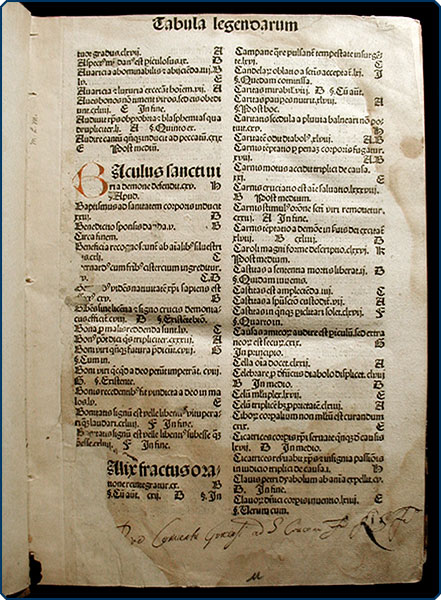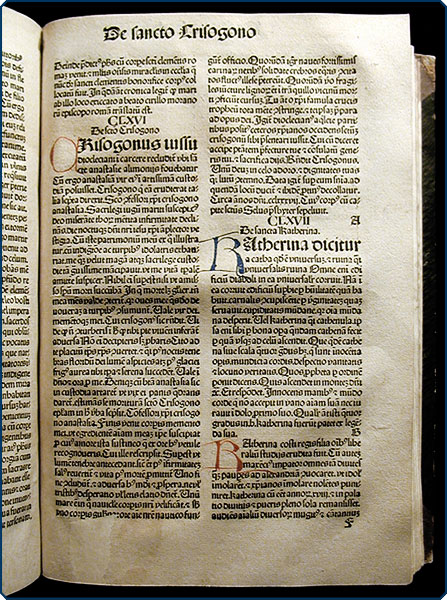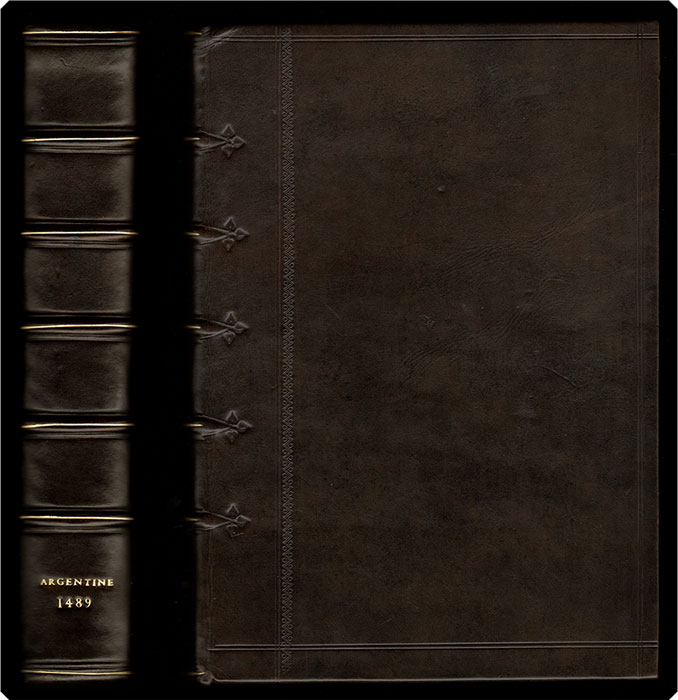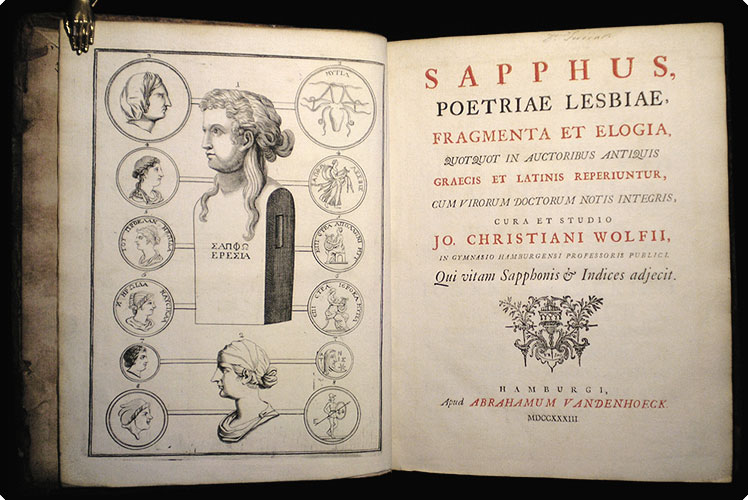
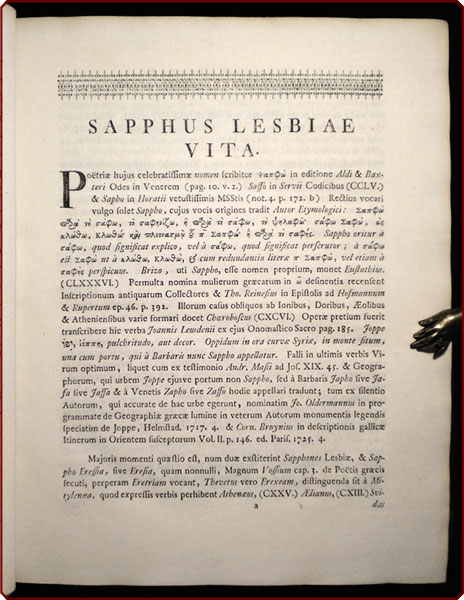
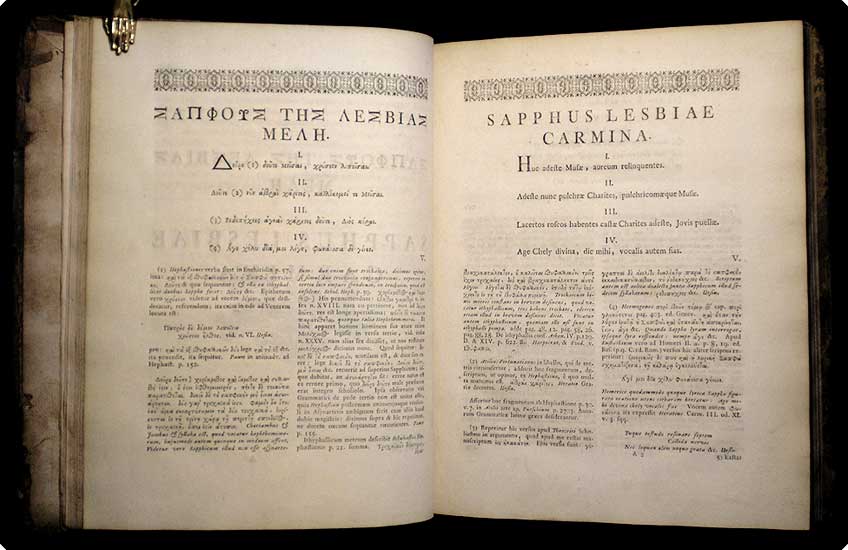
Another book acquired in February 2012 through a gift from our anonymous donor: the first solo printing of Sappho’s poems. Up until Abraham Vandenhoeck printed this book in Hamburg in 1733, Sappho’s poetry had appeared only in multi-author collections like this one from 1600. 1733 may seem awfully late for a solo Sappho, but not when you remember — as CC Classics Professor Owen Cramer reminded us — that the majority of her known work wasn’t discovered until the late 19th century.
Our new book has Greek and Latin on opposite pages and an elaborate frontispiece with a bust of Sappho surrounded by ancient coins. We don’t know how the editor, Johann Christian Wolf, was able to compose a 32-page biography of Sappho (born ca. 615 B.C.), but we commend his effort.
With the ownership signature of Michael Wodhull (1740-1816), poet and translator of Euripides. Colorado College students, faculty, and staff have access to much of Wodhull’s work in paper at Tutt Library or via Eighteenth Century Collections Online.

